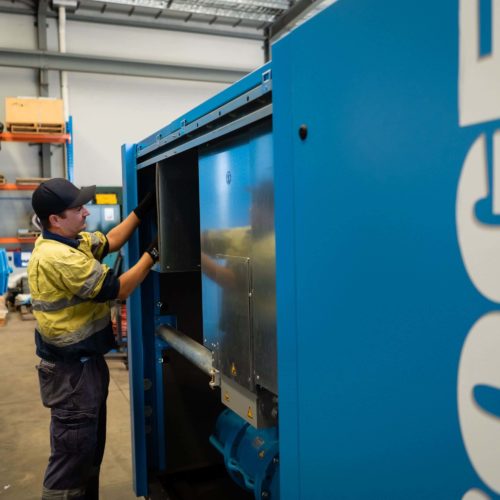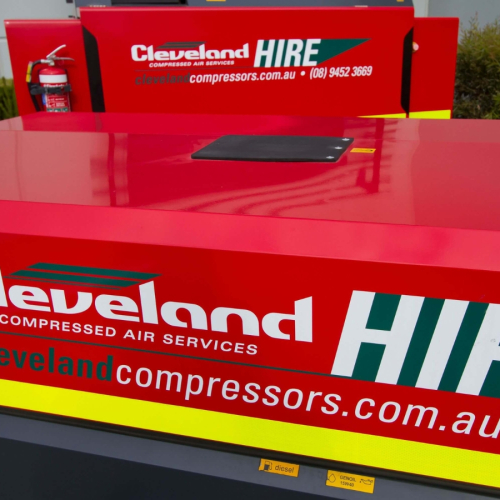When it comes to the types of air compressors that are available on the market, there are as many kinds as there are uses for an air compressor.
The choice of which air compressor is right for you largely depends on the industry that it is being used in, whether it’s a compact, relatively silent scroll air compressor for the workshop you’re after, or the centrifugal, which is used in large industrial facilities, petrochemical and utilities.
Here at Cleveland Compressed Air Services, our wide selection of quality air compressors include:
Oil INJECTED Compressors
- BOGE Screw Compressors
- BOGE Piston Compressors
Oil-Free Compressors
- BOGE Screw Compressors
- BOGE Piston Compressor
- BOGE Turbo Compressors
High-Pressure Compressors
- BOGE Piston Compressors
Piston (also called reciprocating) compressors and screw compressors are the most commonly used types today, and these come in oil-injected and oil-free models.
The benefits of oil-injected air compressors include durability, capability to work in extreme environments, longer life spans and better protection against interior rust; however, they do have what is known as “oil carryover”, where a portion of the lubricant comes out with the compressed air. Also, oil-lubricated models require re-oiling, oil changes and are heavier.
For industries where the air that comes out needs to be completely oil-free, oil-free air compressors are used. These compressors are more expensive to procure and do require more energy to produce the same amount of air; however, the lower maintenance of filtration and no oil change requirement does offset some of the costs.
The oil-free screw compressors also have a limited life and drop in efficiency over time owing to the Teflon coating required on the rotors for self-lubrication. Water injected screw compressors do not suffer from the same problem, as water is a very good replacement for lubricating oil. Oil-free compressors are also noisier but water-lubricated machines have a lower noise output due to the dampening effect of water.
Piston compressors, which start up quickly and can be left idle for long periods of time, are usually used in smaller factories and workshops with some use in specialised high-pressure applications. Small piston compressors are easy to maintain and cheaper than many of their counterparts, the bigger range being very expensive to maintain and operate.
Screw compressors, on the other hand, are used in situations where there is a larger air demand. They are known for their durability, consistently high output and acceptable operating volume level. Although they are generally more expensive than piston compressors, screw compressors do use less energy, are more reliable and, if properly maintained, can be left to run constantly.
Centrifugal compressors are dynamic in nature and, therefore, are continuous flow units that are able to cater for large flow rate requirements in oil-free and plant air applications. The centrifugal technology was originally limited to low-pressure applications but these days medium to high-pressure ranges are also catered for. The advantages of going with centrifugal compressors include oil-free air production, low specific energy requirement, low maintenance and high reliability.
The versatility of air compressors, and the high quality of our compressors, in particular, make them especially reliable pieces of equipment that can be used in a variety of industries. These include:
- Manufacturing
- Medical
- Mining
- Civil construction
- Food and beverage
- Oil and gas
- Heavy industrial
- Workshop
Of course, these are only some of the uses of air compressors, which have gone from being staple pieces of equipment in power stations, oil and gas rigs, and manufacturing plants to home workshops and garages.


